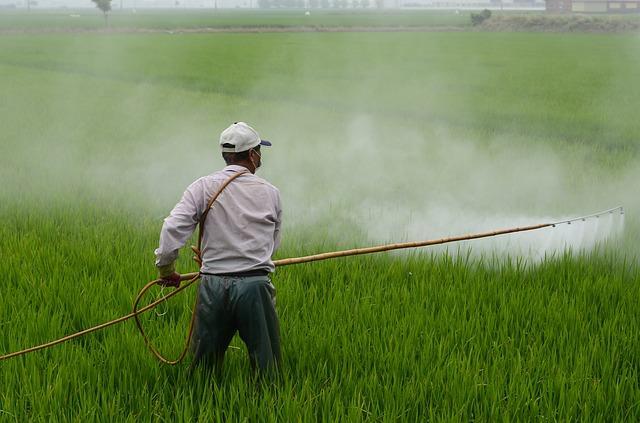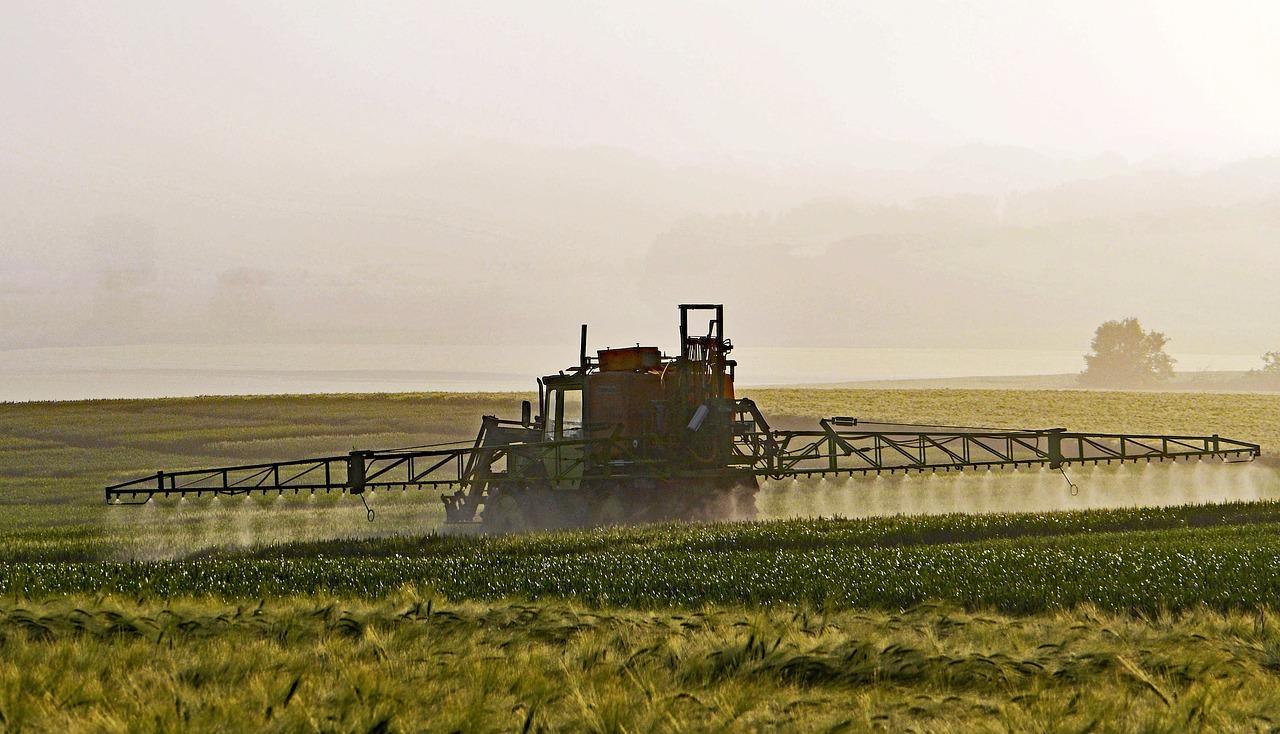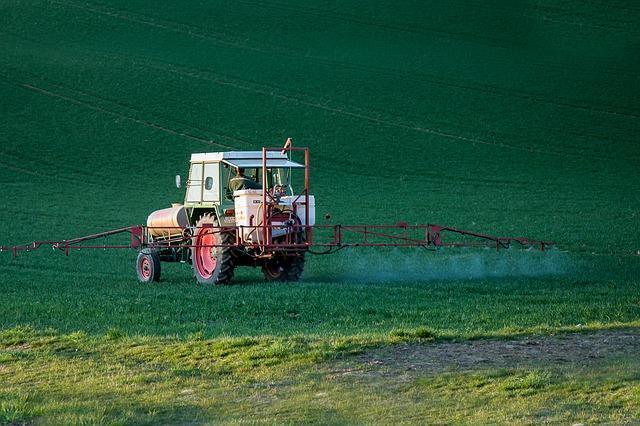What Are Agrochemicals in Agriculture?


We associate chemicals in agriculture with negative impacts on the environment. Whether it is surface runoff leading to water pollution, harmful pesticides poisoning local wildlife or degradation of the soil, chemicals can spell disaster for many agricultural areas. Such associations are valid, but they are also myopic. Not all chemicals are the same. When used correctly agrochemicals not only prevent harm to ecosystems, but they can be used to help sustain them while still providing the produce we need to survive.
To better understand how they affect the environment, thedailyECO asks what are agrochemicals in agriculture? We look at the different types of agrochemicals and their uses. We also assess the advantages and disadvantages they provide for ensuring a sustainable future in agriculture.
What are agrochemicals?
Agrochemicals (alternatively agrichemicals) are chemicals that are used in agriculture for various purposes. While they are most associated with pesticides to kill insects and other animals that might harm crops, they are also found in fertilizers and products used to promote growth. They can apply to both arable and pastoral farming, but they are most associated with arable farming due to the pervasive use of agrochemicals in pesticides and fertilizers.
Although thought by many to be a recent advancement in agriculture, agrochemicals are nothing new. Adding chemicals to soils to promote growth has been a practice carried out since at least the early 19th century. This was in the form of adding nutrients such as nitrogen and potassium. The use of synthetic chemicals is a more recent practice, although there are always new breakthroughs in the agrochemical industry.
Pesticides are able to kill insects and other animals which are known to destroy crops. This ability to kill organisms may be beneficial for the crops themselves, but if animals around a farm are exposed to these chemicals, it can have deleterious results. Some chemicals are better than others, so the agriculture industry is always looking for better agrochemicals to do an effective job without causing environmental damage.

Types of agrochemicals
There are different ways of classifying agrochemical products, although the most common classification is based on the pest or objective on which they act:
- Herbicides: these agrochemicals are responsible for eliminating adventitious vegetation that can harm crops, often in the form of weeds. These plants compete with the crop species for nutrients in the soil. Certain chemicals are designed to kill the weeds without negatively affecting the crop plant.
- Insecticides: insecticides are distinguished according to the development phase of the insects they attack, which can be the egg, larva or adult stage. There are a large number of different insects that can be harmful to the crop, ranging from worms and aphids to flies.
- Other pesticides: pesticides kill various types of pest, not only weeds and insects. Acaricides are able to kill arachnid species, often in the form of mites. These can also kill during different stages of their development. Bactericides are used to kill bacteria which may infect a crop. Similarly, fungicides are used to kill fungal pathogens. Some may be used as a treatment for infection or infestation while others are preventive.
- Fertilizers: some soils need additional ingredients to help improve the yield. Plants need various nutrients to develop properly. With the high demand in the agriculture sector, ensuring a high yield in a crop can be difficult. Adding agrochemical fertilizers can boost the soil's nutritional value and better ensure growth.
- Growth agents: fertilizers are a type of growth agent, but this type of agrochemical can also be applied to pastoral farming. Hormonal and other types of growth agents can be given to animals to help their development, providing more meat and other resources derived from livestock farming.
- Antibiotics: these are used to treat bacterial infections in agricultural plants and animals, but they may also be preventive. Sometimes they are used as a growth agent.
Agrochemicals can also be differentiated according to whether they act immediately or if they act in the long term. In the latter case, they have a residual action. This can change the quality of soils and other matter used in agriculture. They are usually designed to prevent infestations, but sometimes they are used as treatments for infections of other problems threatening crops.
Another classification of agrochemical is the mode of action in the organism. In plants, systemic agrochemicals penetrate the organism and is found in their sap, acting when a harmful agent attacks it. The penetrants remain in the part of the plant where they have been applied. Contact agrochemicals are limited to remaining on the surface where they have been applied, being susceptible to being eliminated by rain or irrigation.
Learn more about how we determine the damage agrochemicals cause agricultural land with our article on what is soil science study?
Agrochemical uses in agriculture
Agriculture requires the use of pesticides, fertilizers and other chemicals to ensure crop yield and livestock survival. While there are different types of agrochemicals in terms of their action, there are also different types according to quality. Some of them are biological controls which minimize the impact on environment. Synthetic agrochemicals are not necessarily dangerous, but some of them can cause degradation.
The uses of agrochemicals can determine their impact and the approach the agricultural industry takes is vital for environmental protection. With this in mind, here are some important uses of agrochemicals:
- Pest management: we already know that agrochemicals are often pesticides, but different approaches can be taken for their use as treatments or preventives. A pest management system determines from what pests crops need protection, as well as assessing them for their presence during their growth. An integrated pest management (IPM) system can use both synthetic and biological agrochemicals to minimize damage.
- Fertilization: fertilizers can help plants grow, but they can also introduce chemicals to the soil which can damage ecosystems. Some agrochemicals can be used as slow release fertilizers to minimize this.
- Bio-products: some agrochemicals can be used which will naturally biodegrade. Advancement in chemical engineering in the agricultural sector can create synthetic chemicals which reduce their impact, but so too can natural chemicals.
- Farming approaches: agrochemicals can be used in different methods of farming. When used negligently, they can create high yield or produce larger animals, but their environmental impact can be seriously damaging. Others are used in ways which help protect the ecosystem and ensure a sustainable method. Examples include precision agriculture methods which use technology to minimize environmental damage.
Another approach to farming which can incorporate agrochemicals is regenerative farming. This is an agricultural approach to regenerate soils and biodiversity for a more sustainable future. Learn more with our article explaining what is regenerative farming?

Advantages and disadvantages of agrochemicals
The current agri-food industry depends largely on the use of agrochemical products, which influenced the so-called Green Revolution in the second half of the 20th century. Its widespread use is not without its problems, but this depends on the type of chemicals used and how they are integrated into farming methods.
Advantages of pesticides
The use of agrochemicals boosts the productivity of plantations, allowing the current food production model to be maintained. They increase production, make the product cheaper, delay its deterioration and improve the appearance it offers to the consumer.
Disadvantages of pesticides
Agrochemicals have a large number of detractors among environmental organizations due to the risks involved in their use. When proper safety measures are not followed or abused, they can be responsible for soil contamination and water contamination. They can result in serious health risks from improper use. This is especially notable in developing or transition countries, where the lack of sufficient safety measures frequently causes serious human and environmental damage.
Currently, there is a confrontation between parties with vested interests. Environmental organizations often denounce the risks and harm to health caused by the consumption of products with traces of agrochemicals. Pharmaceutical and chemical industries often deny their consequences if the established safety measures are respected.
Whether the use of agrochemicals is advantageous or harmful depends on the scientific research involved. Unfortunately, the intense momentum of chemical advances means testing is not always thorough or conclusive. In this way, caution is required in their use. However, when trusted agrochemicals are used in a sustainable manner, they can help solve the problem of human hunger in a sustainable way.
Discover more about the pros and cons of different forms of agriculture with our article asking what is aquaculture?
If you want to read similar articles to What Are Agrochemicals in Agriculture?, we recommend you visit our Plant care and cultivation category.







